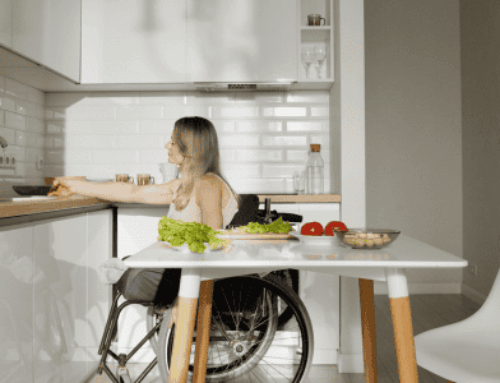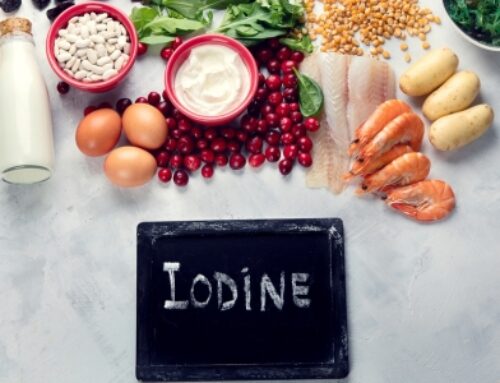What you put into your body is what you’ll get out of it.
Did you know that the cells in your muscles are renewed every 30-40 days? And where do you think that new protein comes from? You guessed it! Your diet! Your muscles and the rest of your body for that matter are made from the building blocks of what we eat each day!
We literally are, what we eat!
Weight training or resistance exercise is one of the best activities that we can incorporate into our weekly routines. Building and maintaining muscle in this way keeps our blood sugar levels healthy, our metabolisms roaring and our bones strong.
Weight training does put a certain amount of stress on the body. It’s really important that you complement any training program with a good quality, sufficient diet. Eating well gives your body the best chance of building muscle and recovering adequately after a heavy session.
Here are 8 foods that, if you eat them regularly, will ensure your diet is nutrient dense, rich in particular vitamins and minerals and help you achieve strong, healthy muscles!
Broccoli
A by-product of metabolism is the production of free-radicals. These are chemicals that damage cell membranes and DNA. The job of the antioxidant is to neutralise these free radicals so they can’t damage our cells.
Vitamin C is a powerful antioxidant and of all the fruits and vegetables broccoli is one of the best sources. In fact, just 100g of broccoli contains 100% of our body’s daily vitamin C needs. Don’t boil broccoli as you’ll lose a significant amount of it’s health promoting chemicals. The best way to eat it is raw, blanched, steamed, microwaved or stir-fried. Other good sources of vitamin C are berries, citrus fruit, kiwi fruit, spinach, kale and capsicum.
Recommendation: Include this vegetable along with other green ones daily!
Recipe: Beef and Vegetable Stir Fry
Salmon
There is a significant amount of research available now on the benefits of omega 3 fatty acids. These fats are the ones we don’t need to be afraid of as they can improve both our cardiovascular and joint health. Wild salmon is one of the best natural sources of omega 3 and I reckon it’s the absolute yummiest way to eat it!
Recommendation: Aim to include salmon or other fatty fish (tuna, mackerel, sardines) at least once or twice a week.
Recipe: Salmon and 4 Bean Salad
Lentils
The body’s primary source of energy comes from carbohydrates. The right carbohydrate intake is vital if you live an active lifestyle, you just need to learn which are the best ones to choose. Lentils, part of the legume family, are a great source of high fibre and low GI (glycemic index) carbohydrates. This means that during digestion, sugar is slowly absorbed into bloodstream giving you better control over your blood sugar levels and more sustained energy throughout the day. They’re also a source of protein and other nutrients.
Recommendation: Add lentils to salads, curries, soups and stews.
Recipe: Lamb and Vegetable Stew
Eggs
The best protein sources are the ones that come from whole, unprocessed foods, not protein powders or bars. Eggs provide a fantastic source of high quality protein (meaning it contains a large range of different amino acids) as well as large amounts of nutrients such as selenium, vitamin B12, iodine, vitamins A and E and so much more.
Recommendation: Enjoy eggs for breakfast, lunch and dinner as a very quick convenient meal. Scrambled, poached, fried or made into a quiche or omelet, you really can’t go wrong with eggs!
Recipe: Baked Beans with Eggs and Haloumi
Steak
Iron is vital for transporting oxygen around the body and insufficient intake can lead to symptoms of low energy or fatigue. Red meat such as beef, lamb, pork and kangaroo are rich in iron and other nutrients such as vitamin B12. It’s also a great source of protein and helps keep you feeling fuller for longer.
Recommendation: Consume red meat 2-3 times per week to help achieve an adequate intake of iron. If you’re a vegetarian or not a big meat eater try foods such as nuts and seeds, whole grains, legumes and green leafy vegetables. There are other dietary strategies to help your body absorb more iron, seek out a nutritionist or dietitian for further help.
Recipe: Zesty Lamb and Grilled Vegetables
Natural Yoghurt
Good bone mineral density is vital for decreasing your risk of osteoporosis (the biggest risk factor of falls amongst the elderly) later on in life. In order for our bones to increase in density they need calcium. One of the best sources of calcium is natural yoghurt.
Recommendation: 200g a day will offer almost half of your daily calcium needs as well as provide you with protein, beneficial bacteria, vitamin B12 and magnesium.
Recipe: Yoghurt Parfait
Raw Nuts
There’s nothing worse than illness interrupting your lifestyle. An adequate intake of zinc is necessary for good immune cell production and can help you ward off those pesky colds and flus. Good sources of zinc are nuts. Raw nuts are the best choice and make very handy on-the-go snacks. They are great pre and post workout, with breakfast or thrown into a salad or curry. Nuts are also a fantastic source of dietary fibre, healthy fats and a large range of vitamins and minerals.
Recommendation: 20-30g of raw nuts per day has been shown to decrease risk of developing chronic diseases such as heart disease.
Ideas: 27 low calorie snacks
Sweet Potato
Sweet potato is an excellent source of beta-carotene, a chemical converted to vitamin A by the body. Vitamin A has a large range of important functions within the body from maintaining a healthy retina to healthy skin and good immune function, just to name a few. Sweet potato is also a great source of low GI carbohydrate and is perfect for have sustained energy in-between meals or to include in a post-workout recovery meal. Try making oven baked chips tossed in extra-virgin olive oil, salt and paprika. Yum! Beta-carotene is also found in carrots, pumpkin, kale and apricots.
Recommendation: Include sweet potato and lunches and dinners are fantastic whole food source of healthy carbohydrate.
Recipe: Cumin & Sweet Potato Soup
Whatever your goal, our Signature Program teaches you key nutrition principles and then helps you apply them to YOUR individual life and goals so that you can be consistent! Check it out!




